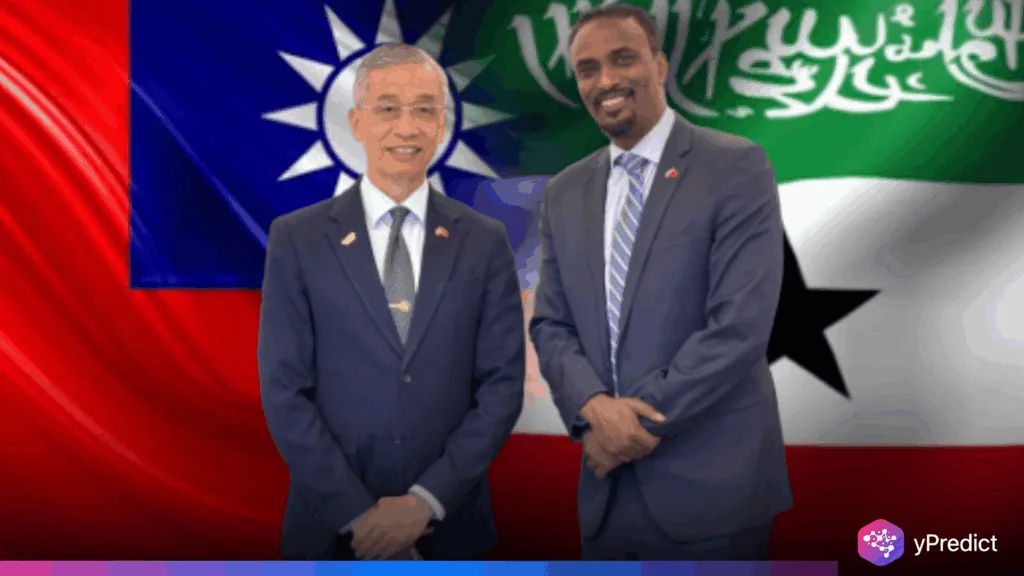
Somaliland and Taiwan have formalized a strategic new partnership, definitely a substantial move for both. The Somaliland-Taiwan agreement covers financial management, institutional capacity building, and maritime security initiatives, all crucial areas as their economies develop. Also, the primary focus is to enhance regulatory capabilities, strengthen coast guard collaboration, and generate more revenue for both sides. It’s a bold and strategic step for two partners eager to boost their standing on the global stage.
How Will the Somaliland-Taiwan Agreement Reform Finance?
The Somaliland-Taiwan agreement focuses on improving financial regulation and strengthening institutional checks. At its core, both parties are setting up comprehensive joint training programs tailored specifically for central bank professionals. The agenda covers everything from banking supervision to sharing best practices in central banking.
Plus a sharp focus on robust anti-money laundering protocols. Additionally, both parties are actively working on establishing new frameworks to enhance transparency in Somaliland’s monetary policy. So, this could also strengthen confidence in the FX market.
Will Joint Efforts Strengthen National Institutions
A major component of the Somaliland-Taiwan agreement is focused on maritime collaboration and building up the “blue economy.” During Foreign Minister Adam’s recent visit, Somaliland’s Coast Guard chief, Ahmed Hurre Hariye, and his Taiwanese counterpart, Chang Chung-lung, finalized a deal. Consider cooperative patrols, hands-on training, and intelligence sharing to increase both sides’ capabilities.
Taiwan will also provide much-needed technical support and drive personnel exchanges. So, they’re all aimed at modernizing Somaliland’s coastal operations and helping them take real control of their maritime resources.
But the cooperation isn’t just limited to security on the water. Also, they are reaching into bigger-picture stuff too, like strengthening public financial management, education, healthcare, and ICT. The initiative aims to offer Somaliland an opportunity to create key institutions and running systems that can meet the demands of the global market.
Could Collaboration Shape Future Economic Pathways
These partnerships could genuinely shift Somaliland’s development path. The agreement with Taiwan? It sends a strong signal to the investment community. Somaliland is making real moves to improve governance and regulatory reliability. That kind of message? Exactly what investors want to hear before putting money into agriculture, energy, or infrastructure.
So, it’s clear both sides intend to expand collaboration, likely on broader, multilateral stages. Also, Taiwan has openly expressed willingness to work with Somaliland and other democratic partners as well.
The broader aim? Driving growth, strengthening the legal framework, and pushing back against undue influence from rulers. Frankly, it’s a strategy that’s difficult to challenge in today’s market environment.
Somaliland-Taiwan Agreement And Its Global Impact
The recent Somaliland-Taiwan agreement is more than just another diplomatic handshake. This deal has real room for growth in East Africa’s FX markets, offering enhanced financial stability and less currency volatility. On the global market, it’s a prime example of agile, smaller players leveraging partnership strategies to conquer the greater powers.
Somaliland’s lack of formal recognition keeps the door closed to key international financial systems. Add to that the expected political blowback from Somalia and China, and determination alone won’t cut it. Thus, effective policy shifts will demand both ironclad political will and solid funding.
But here’s the kicker: if this is executed well, the Somaliland-Taiwan alliance could be a disruptor. Plus, it will reshape regional investment trends and shift strategic alliances. If the agreement is successful, it could strengthen economic buffers, protect state autonomy, and improve governance. The bottom line? There’s opportunity here, but also a fair share of risk. Strategic follow-through is going to be the key distinction.







